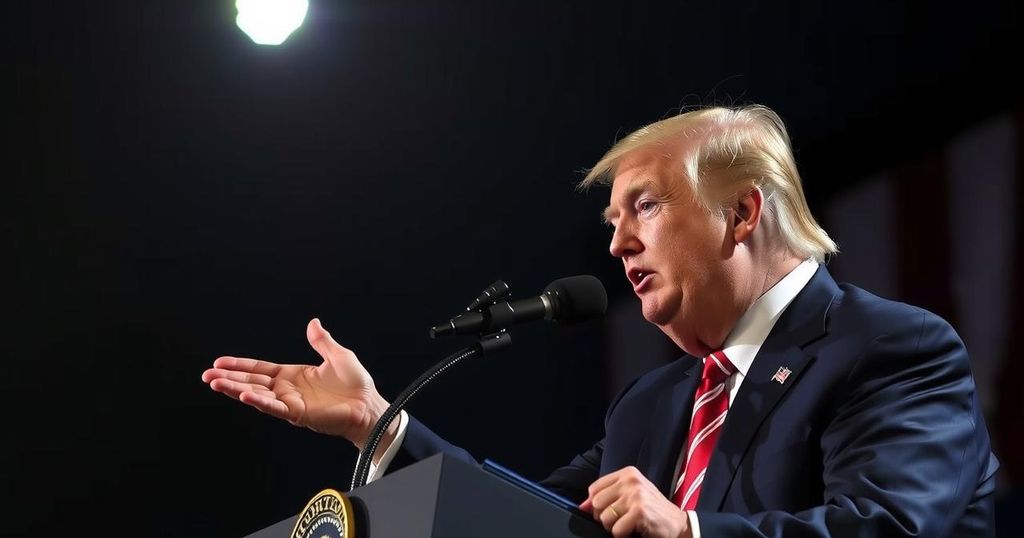Trump Regrets Leaving White House, Critiques Democrats at Rally in Pennsylvania

During a rally in Pennsylvania, former President Donald J. Trump claimed he “shouldn’t have left” the White House, expressing dissatisfaction with polling against Vice President Kamala Harris. He labeled the Democratic Party as “demonic” and reiterated his past claims of electoral victory, reflecting on his administration’s achievements, particularly in border security.
Former President Donald J. Trump, during a recent rally in Lititz, Pennsylvania, conveyed to his supporters that he believes he “shouldn’t have left” the White House at the conclusion of his presidency. This statement came amid a backdrop of discontent due to recent polling data suggesting he is losing traction against Vice President Kamala Harris. At the rally, he expressed his frustrations about the political landscape and made inflammatory remarks regarding the Democratic Party, describing it as “demonic.” Mr. Trump articulated his belief that his time in office was marked by significant accomplishments, claiming that the United States enjoyed its “best border” security under his administration. He also referenced immigration statistics, emphasizing the strong borders at the time of his departure from office. Despite appearing hoarse and fatigued, Mr. Trump took the opportunity to ad-lib instead of adhering to his prepared remarks, asserting that this would allow the “truth” to be revealed. He recollected his earlier sentiments following the 2020 election loss, where he reportedly expressed to aides that he would not leave the White House as he believed he had won the election. This convoluted narrative reflects Mr. Trump’s ongoing contestation of the election results and a continued connection with his base.
Donald J. Trump, who served as the 45th President of the United States, remains a highly polarizing figure in contemporary politics, especially following his 2020 election defeat. His unsuccessful attempts to overturn the election results and claims of widespread electoral fraud have shaped his narrative and interactions with both supporters and opponents. The political ramifications of his presidency continue to influence U.S. political discourse, particularly as he campaigns for a possible return to office. Trump’s rhetoric often targets his perceived enemies, including the Democratic Party and media outlets, further entrenching divisions within the American political landscape.
In summary, former President Donald J. Trump’s recent remarks at a Pennsylvania rally showcased his dissatisfaction with his departure from the White House and highlighted his persistent belief in the legitimacy of his claims regarding the 2020 election. His rhetoric, alongside his descriptions of political adversaries and claims to border security successes, underscores a continued engagement with his supporters as he navigates the political arena in hopes of a comeback.
Original Source: www.nytimes.com






